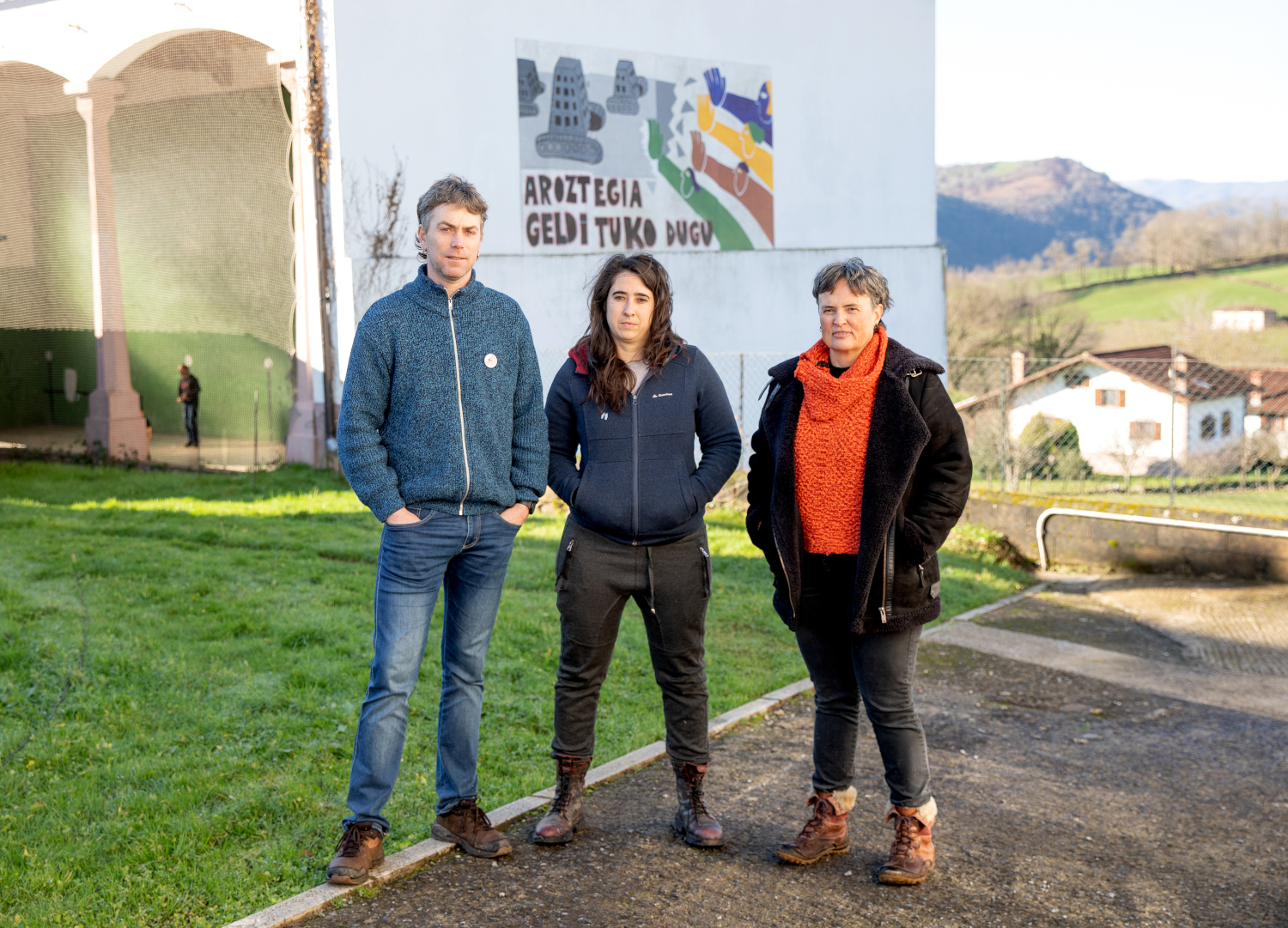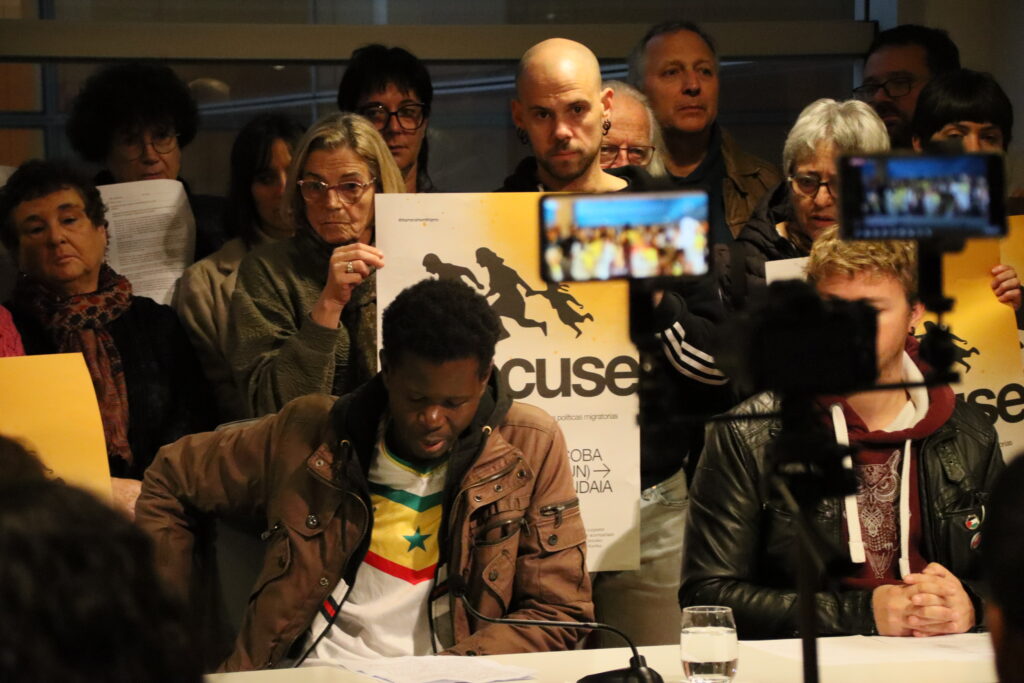Defective engineers, relinquishing the front line in the fight against the system
- There are not a few senior engineers and technicians from the big companies who give up their jobs. From them, it is heard that they have made the decision because they were ‘burned’, tired of the profession or seeking personal development. But there are those who have deserted and proclaimed the decision to change life as a political option, renouncing being an elite assistant of the system that leads society to disaster.

“Several engineers resign believing that their work is absurd. The press treats this phenomenon as a matter of individual professional changes. But what engineers are looking for is more than a new trade if it is a collective struggle?” The cases of some of these deserters have been studied by Paul Platzer, the engineer himself at the Nantes Engineering Institute in Brittany, Lundi Matin and Mediapartat, since the resignation of engineer and mathematician Romain Boucher, who recently did something in the French state.
Romain Boucher is a scientist date, specialized in data and statistics. After completing the master's degree, it was signed by the consultant Sia Partners (1,650 employees plus employees). After three years of developing projects by energy companies and public administration, he has given up his job to better denounce the responsibility for digitalisation, big data and artificial intelligence in the ecological and social catastrophe. In addition to the damage of techno-liberalism, organize the association Vous N’êtes Pas Seuls (You are not alone) to help those who, like her, try to give up high technical positions. He has recently studied agriculture on a farm in Corsica.
He was a good student, gave great responsibilities to the young Boucher from Sia Partners, and also the salary: “They paid me very well, 44,000 euros in the first year, in the third year they earned 60,000. In financial terms, in three or four years a quantitative analyst can earn €200,000 a year.” And what an elite technician looks for passionately was working with cutting-edge systems and technologies, directing complex problems that heat neurons like the heart to a scientist.
In one of these orders a new computer model was sent for the creation of the structure of the Criminal Directorate of Competition, Consumption and Fraud (DGCCRF) in France to detect fake advertisements in the webs.Pronto realized that the real objective was not to detect and punish the mistakes made by the large Internet companies, but that the heads of the administration could say that fraud was being detected. “Suddenly you realize that the orders you do are meant to monitor people and organize the structure with fewer workers.”
It was also sent to a project for the French Biodiversity Agency. The Agency has 2,000 agents for controlling streams, rivers, lakes and other waters. Following the award of the project to better rationalize the water controls obtained from the statistical uses of the data contained in it, Sia Partners is fully involved in Boucher. He soon realized that the purpose of the new statistical model was not to prevent contamination, but to reduce staff. Do not look for more pollution, but make fewer observations even though the pollution remains the same.
“In general – Boucher told journalists – many of the government-funded projects are to streamline resources and open the way to the budget cuts that follow. Therefore, the work was technically very exciting, it was wonderful to what extent we could arrive, but when you see the result you realize that everything is to reduce the resources of public services.”

CONTRIBUTING TO GROWTH
In addition to the high-level technicians, he was also a great observer of the current serious problems and new movements, so Boucher closely followed his movement, the ZAD and others. He hoped to help his demands from within the system. In the years 2019-2020, the creation of a model for public schools to better detect illegal land occupations from satellite imagery was commissioned. And there he clearly saw that this technology would help AD occupations organized by the citizens most aware of macro-projects to be controlled even faster and more closely by the authorities. When he resigned, his mind from Sia Partners offered him to improve his working conditions, thinking it was a trick to improve his salary.
Paul Plexe analyzes the cases of a number of people who have been desperate from the top positions for the leadership that has taken their office. Many of them could marry the official theory that the media has spread, that they have been converted into a search for personal well-being or a better professional opportunity. In some, however, it has found a deep collective sense, a desire to profoundly transform society, because injustices, crushing and the destruction of life are unsustainable.
“Although not all resigning engineers are necessarily anti-capitalist, everyone I have interviewed has highlighted that their ecological and social goals have not married the market. Companies abandon any project that does not serve to increase performance, whether or not it is of interest to humanity or the biosphere.” Companies are working for unlimited growth, and they, elite technicians, are more aware of the limitations of the planet than anyone else.
However, desertification is a tough choice and several groups have organized themselves to go along the road helping each other. Ingénieur·es Engagé·es (Committed Engineers) study the role of engineers in society and the political dimension of techniques, addressing political ecology from the perspective of different disciplines. Vous N’ètes Pas Seuls (You are not alone) helps employees who suffer a breakdown between their values and the work they do, gathering information about the damage caused by their sectors, collecting testimonies from those who have left, etc.
Romain Boucher: “The engineers, who work in the heart and the driving of the techno-industrial machinery, are well positioned to block it, but to do so they must do self-criticism and move away from the blind apology of progress. And at the same time, from the point of view of declining growth, engineers must intervene in the demolition and promotion of certain harmful industrial activities, alternative, sweeter, more democratic technologies.”
Ilbeltzeko igande goiz batez jo dugu Baztanera. Eguzkiak oraindik ez du Lekarozko plaza argitu; bertan elkartu gara Garbiñe Elizegi Narbarte, Itziar Torres Letona eta Ernesto Prat Urzainkirekin. Itzaletan hotz egiten du eta umorez goxatu dugu lehen agurra, hogei urtean... [+]
Euskal Hirigune Elkargoaren babesarekin, euskaraz erantzundako zientzietako azterketen zuzenketa antolatu dute asteartean Baionako Arteen Hirian, eskatzen diren baldintzak errespetatuz.
"Duela gutxi arte osoki euskaraz egiten zuten gure ikasleek brebeta eta orain zientzietako froga euskaraz egitea debekaturik dugu".
In language policy theory there are areas of use of language which, due to their broad and referential social character, are of strategic importance such as administration, teaching, the world of work and culture. These four functions have been interpreted by many experts as... [+]
2019an BBVAren Akziodunen Batzarra gauzatzen ari zen bitartean egindako protesta baten harira, sei pertsona identifikatu zituen Ertzaintzak, eta mozal legea aplikatuz horiei isuna jartzea proposatu zuen. Sei kideetako bat absolbitu du berriki Gasteizko epaile batek, ekintzari... [+]






















